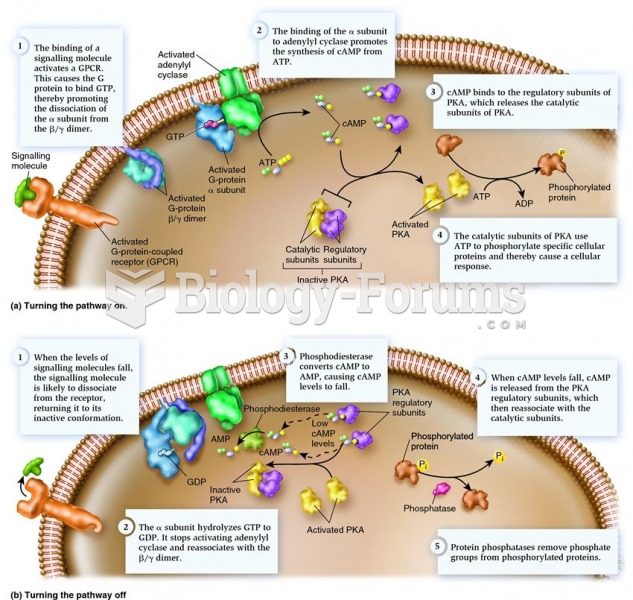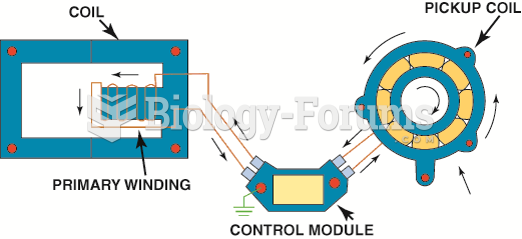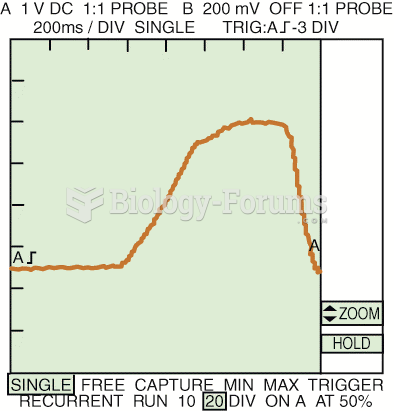|
|
|
An identified risk factor for osteoporosis is the intake of excessive amounts of vitamin A. Dietary intake of approximately double the recommended daily amount of vitamin A, by women, has been shown to reduce bone mineral density and increase the chances for hip fractures compared with women who consumed the recommended daily amount (or less) of vitamin A.
According to the National Institute of Environmental Health Sciences, lung disease is the third leading killer in the United States, responsible for one in seven deaths. It is the leading cause of death among infants under the age of one year.
Once thought to have neurofibromatosis, Joseph Merrick (also known as "the elephant man") is now, in retrospect, thought by clinical experts to have had Proteus syndrome. This endocrine disease causes continued and abnormal growth of the bones, muscles, skin, and so on and can become completely debilitating with severe deformities occurring anywhere on the body.
In 1844, Charles Goodyear obtained the first patent for a rubber condom.
More than 150,000 Americans killed by cardiovascular disease are younger than the age of 65 years.
 Luna Park at Coney Island was a vast living theater in which strollers were both spectators and acto
Luna Park at Coney Island was a vast living theater in which strollers were both spectators and acto
 What happens when oil tankers wear out? They go to Bangladesh, where they are turned into scrap. ...
What happens when oil tankers wear out? They go to Bangladesh, where they are turned into scrap. ...





